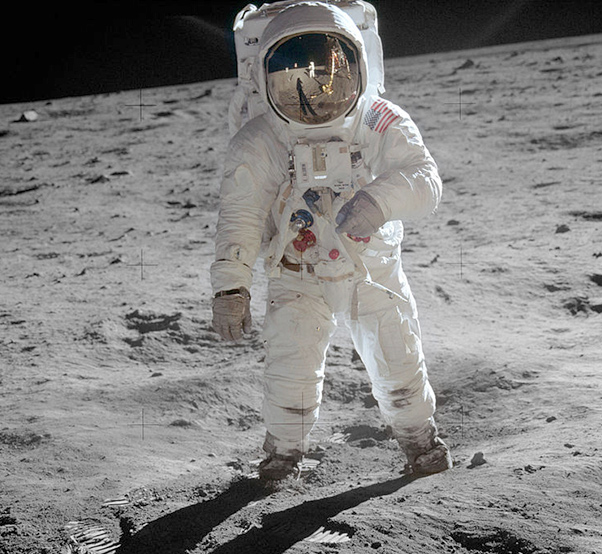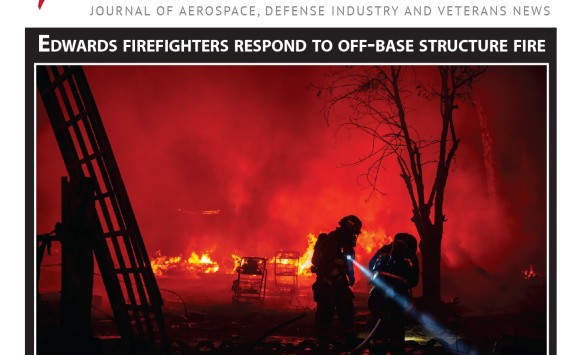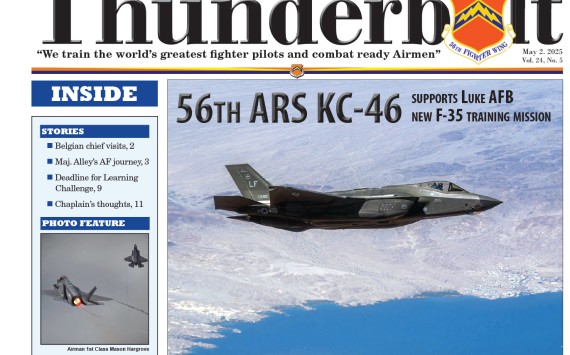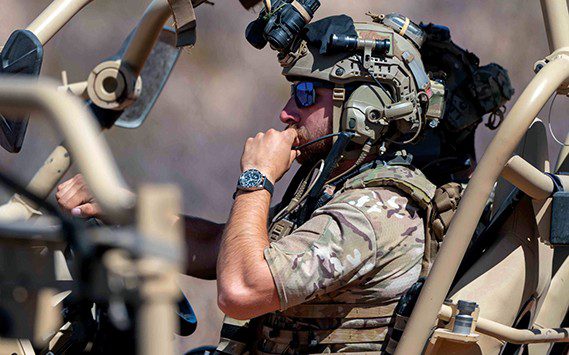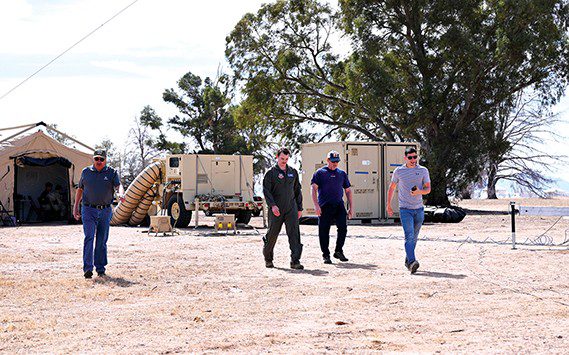He stepped off the lunar module onto the lunar surface after mission commander Neil Armstrong. They spent 21 hours on the moon’s surface and collected 46 pounds of moon rocks.
Aldrin’s first mission in space was in 1966 aboard Gemini 12. The Earth-orbit mission included extravehicular activity and a rendezvous and docking maneuver that paved the way for the Apollo program.
Aldrin’s military career started in the U.S. Military Academy in West Point, New York, in 1947. The Air Force, which became a separate branch of the military that year, didn’t yet have a service academy. Graduates at the time could choose to be in the Army or the Air Force if they graduated near the top of their class. Aldrin graduated third of 475 and chose the Air Force.
In December 1952, Aldrin was assigned to the 16th Fighter-Interceptor Squadron at Suwon Air Base, south of Seoul, South Korea, during the Korean War. He flew 66 combat missions in F-86 Sabres and shot down two MiG-15 aircraft.
“The Korean War was the crucible that shaped many of the Apollo astronauts,” Aldrin wrote in his book, “Men From Earth.” Armstrong was also a fighter pilot flying combat missions during the Korean War.
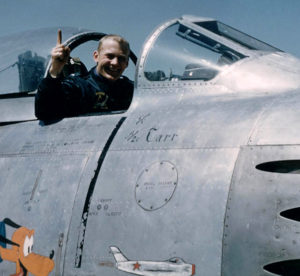
“Combat flying requires an intensity and skill far beyond anything in peacetime aviation,” Aldrin wrote. “Years later, those of us who’d served in Korea were prepared for the hazards and uncertainty of spaceflight because we had already come to terms with fear.”
From 1956 to 1959, he flew nuclear-capable F-100 Super Sabre jets as a flight commander in the 36th Fighter Wing’s 22nd Fighter Squadron, stationed at Bitburg Air Base, West Germany. The Air Force let Aldrin get his doctoral degree in astronautics from the Massachusetts Institute of Technology in 1959.
After leaving NASA in 1971, he became commandant of the Air Force Test Pilot School at Edwards Air Force Base, Calif.
He retired from the Air Force as a colonel in 1972. He lives in Southern California.
See Also:
Moon landing culmination of years of work
President Kennedy issued the challenge
Fifty years ago: One ‘giant leap for mankind’
July 20, 1969: One giant leap for mankind
Apollo 11 at 50: Celebrating first steps on another world
Apollo 11’s ‘amiable strangers’ – Armstrong, Aldrin and Collins
DOD played significant role in lead-up to Apollo 11 Moon mission
Apollo 11 astronaut was also an Air Force general
Apollo 11’s return to Earth rooted in aeronautics research
Johnson Space Center Oral History Project – Neil A. Armstrong






